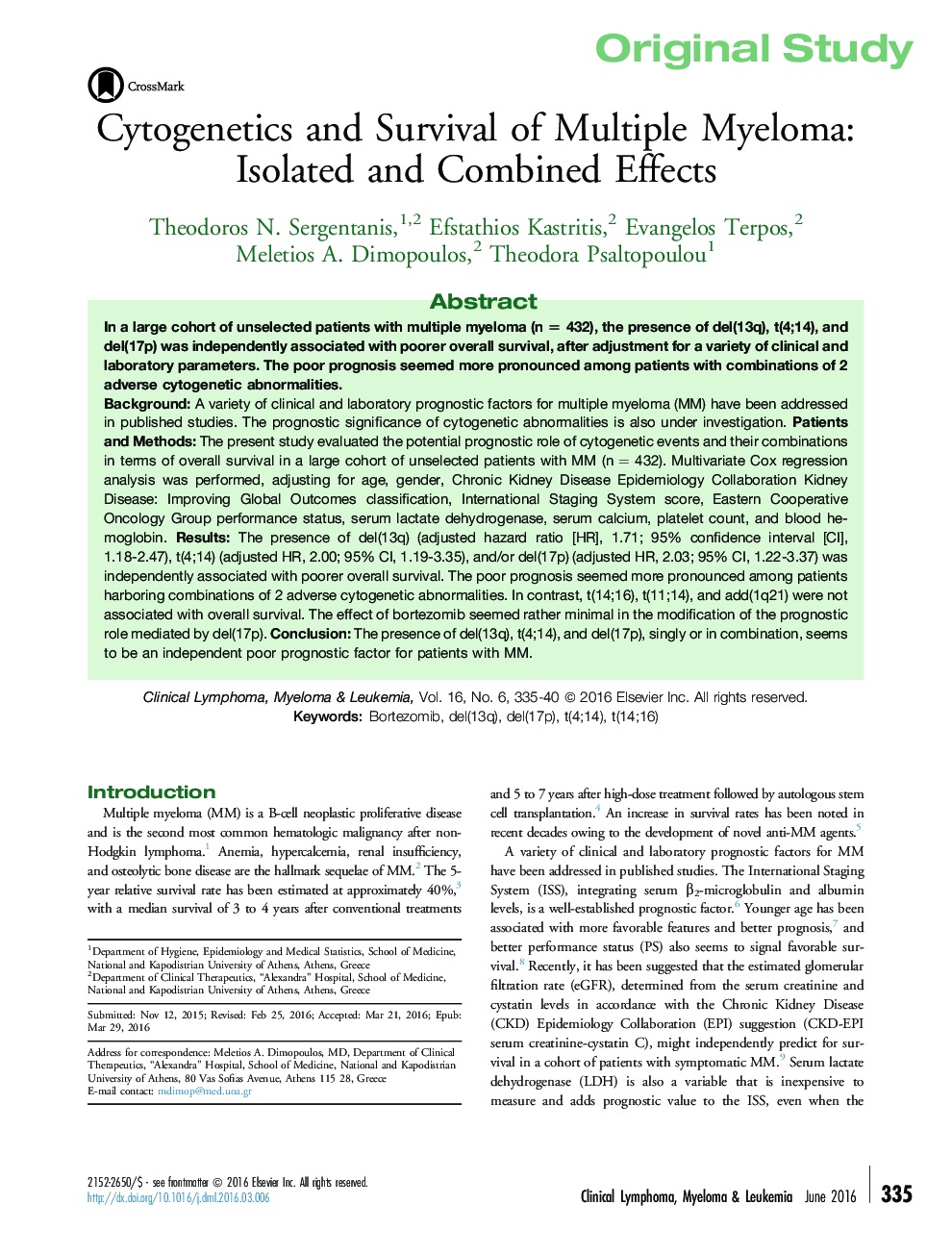| Article ID | Journal | Published Year | Pages | File Type |
|---|---|---|---|---|
| 2754275 | Clinical Lymphoma Myeloma and Leukemia | 2016 | 6 Pages |
BackgroundA variety of clinical and laboratory prognostic factors for multiple myeloma (MM) have been addressed in published studies. The prognostic significance of cytogenetic abnormalities is also under investigation.Patients and MethodsThe present study evaluated the potential prognostic role of cytogenetic events and their combinations in terms of overall survival in a large cohort of unselected patients with MM (n = 432). Multivariate Cox regression analysis was performed, adjusting for age, gender, Chronic Kidney Disease Epidemiology Collaboration Kidney Disease: Improving Global Outcomes classification, International Staging System score, Eastern Cooperative Oncology Group performance status, serum lactate dehydrogenase, serum calcium, platelet count, and blood hemoglobin.ResultsThe presence of del(13q) (adjusted hazard ratio [HR], 1.71; 95% confidence interval [CI], 1.18-2.47), t(4;14) (adjusted HR, 2.00; 95% CI, 1.19-3.35), and/or del(17p) (adjusted HR, 2.03; 95% CI, 1.22-3.37) was independently associated with poorer overall survival. The poor prognosis seemed more pronounced among patients harboring combinations of 2 adverse cytogenetic abnormalities. In contrast, t(14;16), t(11;14), and add(1q21) were not associated with overall survival. The effect of bortezomib seemed rather minimal in the modification of the prognostic role mediated by del(17p).ConclusionThe presence of del(13q), t(4;14), and del(17p), singly or in combination, seems to be an independent poor prognostic factor for patients with MM.
